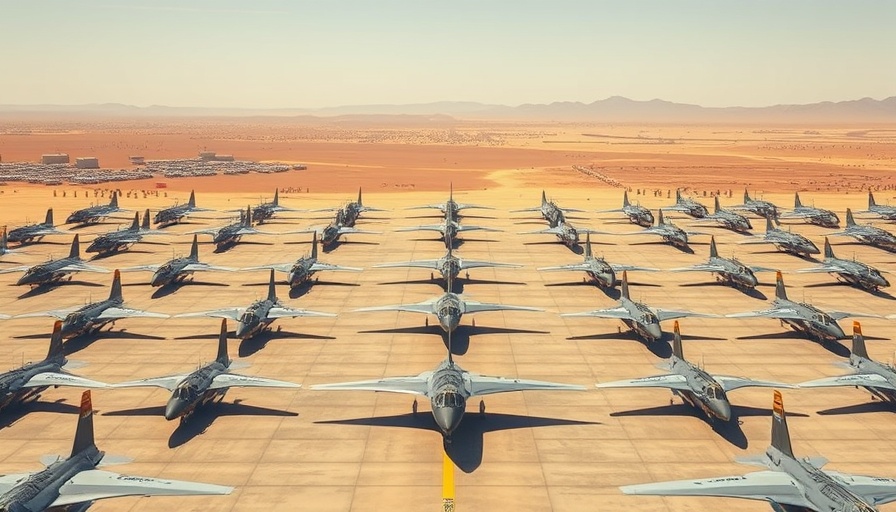
Understanding the Current Tensions in the Gulf
The geopolitical landscape in the Gulf has dramatically shifted following Iran's attack on Al Udeid Air Base, a critical nerve center for U.S. air power. This incident underscores the fragile nature of international relations in the region, where incidents can escalate tensions and threaten peace. Al Udeid, located in Qatar, serves as a hub for American military forces, often facilitating operations in both Iraq and Syria. The implications of such an attack extend beyond immediate military concerns; they ripple through global oil markets, security alliances, and diplomatic relations.
Historical Context of U.S.-Iran Relations
The U.S.-Iran relationship has a long, tumultuous history. Since the Iranian Revolution in 1979 and the subsequent hostage crisis, relations have remained strained. Sanctions and military interventions further cemented mistrust, leading to a cycle of retaliation. The recent attack highlights how deeply rooted these tensions are, reminding observers of the potential for conflicts to escalate with lasting consequences.
The Impact on U.S. Military Strategy
This attack forces a re-evaluation of U.S. military presence in the region. How does the U.S. respond without escalating into a broader conflict? Military analysts will examine options ranging from enhancing air defenses at U.S. facilities to diplomatic negotiations aimed at reducing hostilities. Each decision carries potential risks and rewards, and the impact on regional allies will also be crucial to consider.
Economic Repercussions and Market Analysts
The attack on Al Udeid has not only military but also economic implications. Oil prices are likely to rise as markets react to increased tensions—investors are already on edge, cautiously monitoring developments. Analysts predict fluctuations until a clear U.S. response is articulated. The critical question remains: how will this impact corporate earnings reports and economic forecasts in a post-attack market landscape?
The Role of Tech in Modern Warfare
With the rise of digital transformation in military strategy, we are seeing a blend of traditional combat with modern technology. Cyber warfare is becoming crucial; the capabilities for cyber attacks can alter the dynamics of conflicts at a fraction of the cost of traditional military engagements. As companies like Silicon Valley startups provide innovations, the military’s reliance on technology could redefine how future conflicts are fought and won.
Potential Pathways to De-Escalation
Despite the alarming nature of the incident at Al Udeid, there are always pathways to peace. Diplomatic engagements, albeit complex, can potentially lead to new agreements that address mutual concerns. Forums for dialogue, including economic partnerships or joint military exercises, may pave the way for lower tensions.
As tensions in the Gulf evolve, it is essential for stakeholders, analysts, and the public to remain informed. Understanding the implications of incidents like the Al Udeid attack not only shapes perceptions but also drives policy and strategic decisions going forward.
 Add Row
Add Row  Add
Add 



Write A Comment